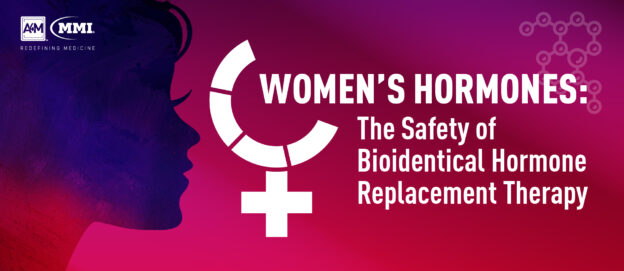The field of hormone replacement therapies, and in particular bioidentical hormone replacement therapy (BHRT), has received considerable attention in recent years as it may offer a potential natural alternative treatment for hormonal balances affecting both men and women. While BHRT has been most commonly prescribed for the treatment of menopause symptoms, it can also be used to improve symptoms related to cancer treatment, insulin resistance, thyroid disorders, and many other health conditions. The use of this therapeutic method is increasing in popularity as awareness of the natural alternative grows and patient preferences continue to change.
The Benefits of BHRT
Chemically identical to hormones produced by the body, bioidentical hormones are derived from plant estrogens and come in a variety of forms including pills, gels, and injections that allow for ease of use that strengthens treatment adherence. BHRT is often prescribed as patients age and their hormone levels begin to decrease, especially in the case of women who enter perimenopause or menopause to improve the moderate-to-severe symptoms associated with this transition. Furthermore, hormone replacement therapies have been found to reduce the risk for diabetes, tooth loss, as well as cataracts while potentially improving skin thickness, hydration, and elasticity. For post-treatment cancer patients with decreased estrogen levels, BHRT has shown efficacy in improving general wellbeing and overall quality of life; it may also alleviate some treatment-related symptoms such as migraines and insomnia.
Associated Risks
Nonetheless, this class of therapeutics has been tied to side effects with current research showing that hormone replacement therapy in general may increase the risk of certain conditions including blood clots, stroke, heart disease, and breast cancer. Additionally, BHRT therapy has been associated with acne, bloating, weight gain, fatigue, and mood swings as common side effects, which may deter some patients from the treatment. The risks and potential for side effects should be evaluated on an individual basis as they vary among women depending on their health history.
Compounded Bioidentical Hormones and FDA Regulation
Custom made by pharmacies per physicians’ orders, compounded bioidentical hormones typically include ingredients combined or altered to meet the specific needs of an individual patient. While such formulations may be effective when tailored correctly, it is important to note that the FDA has not approved any custom-compounded bioidentical hormone therapies to date. Also, many bioidentical hormones are manufactured and sold with limited safety, quality, and purity controls. As such, clinicians are encouraged to maintain caution in prescribing compounded bioidentical hormones.
To safely and effectively prescribe bioidentical hormone replacement therapies and other similar therapeutics, clinicians are invited to join the upcoming Women’s Hormones online course taking place from October 5-17, 2021, expertly designed to build clinical confidence and prepare practitioners for any patient scenario.

